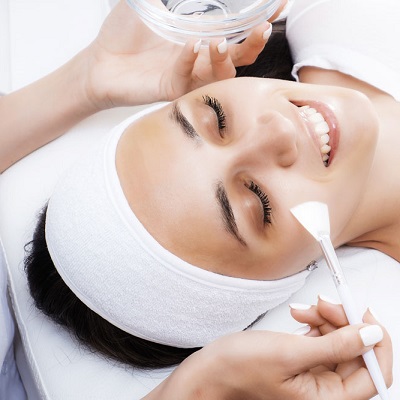Acne scars can significantly affect a person’s self-esteem and confidence, often leaving behind physical reminders long after the breakouts have healed. The healing process of these scars is closely linked to collagen, a vital protein in our skin that plays a crucial role in wound healing and skin regeneration. Understanding the function of collagen in the context of acne scars can lead to better treatment options, particularly for those seeking the Best Acne Treatment Muscat. This article will explore the importance of collagen, how it affects acne scars, and the most effective methods to enhance collagen production for scar healing.
Understanding Collagen and Its Role in Skin Health
What Is Collagen?
Collagen is a protein that forms the structural foundation of the skin, providing strength and elasticity. It is the most abundant protein in the human body, constituting about 30% of total protein content. Collagen is essential for maintaining skin's firmness and smoothness, and it plays a significant role in the healing process after injuries.
The Healing Process of Acne Scars
When acne lesions form, they damage the skin, leading to inflammation and loss of collagen. As the skin heals, the body produces new collagen to repair the damage. However, the new collagen may not be perfectly aligned, leading to the formation of scars. This misalignment can cause the scars to appear raised, indented, or discolored, making them more noticeable.
Types of Acne Scars and Their Collagen Connection
Atrophic Scars
Atrophic scars, which are the most common type of acne scars, occur when the skin loses collagen during the healing process. These scars are characterized by a sunken or pitted appearance. The lack of sufficient collagen means the skin cannot regenerate properly, leading to a textured surface that can be distressing for many.
Hypertrophic Scars
On the other hand, hypertrophic scars result from an overproduction of collagen during the healing process. These scars appear raised and are often darker than the surrounding skin. They form when the body produces too much collagen, causing the scar tissue to bulge above the skin's surface. Understanding how collagen behaves in both scenarios is essential for effective treatment options, especially for those looking for the best acne treatment in Muscat.
How to Stimulate Collagen Production for Acne Scar Healing
Topical Treatments
Using topical treatments that contain ingredients known to stimulate collagen production can significantly improve the appearance of acne scars. Look for products that contain:
- Retinoids: These compounds promote cell turnover and stimulate collagen production, helping to reduce the visibility of scars over time.
- Vitamin C: Known for its antioxidant properties, vitamin C helps promote collagen synthesis and can brighten the skin, aiding in scar reduction.
- Peptides: These short chains of amino acids signal the skin to produce more collagen and can improve the texture and appearance of scars.
Professional Treatments
For those seeking more immediate results, professional treatments can provide significant improvements in acne scars:
- Microneedling: This procedure involves using tiny needles to create micro-injuries in the skin, stimulating collagen production and encouraging skin renewal. Microneedling can be particularly effective for atrophic scars.
- Chemical Peels: These treatments use acids to exfoliate the skin's surface, promoting cell turnover and enhancing collagen production. They can help reduce the appearance of both atrophic and hypertrophic scars.
- Laser Therapy: Laser treatments target scar tissue and promote collagen remodeling. This method can effectively treat various types of acne scars, leading to smoother skin.
Nutrition and Lifestyle Changes to Enhance Collagen Production
Diet for Healthy Skin
A balanced diet rich in nutrients can significantly impact collagen production. Consider incorporating the following into your meals:
- Protein-Rich Foods: Collagen is made from amino acids, which are found in protein-rich foods such as chicken, fish, eggs, and legumes. Consuming adequate protein is vital for collagen synthesis.
- Vitamin C-Rich Foods: Citrus fruits, berries, and leafy greens are excellent sources of vitamin C, which is crucial for collagen production.
- Hydration: Keeping the skin hydrated is essential for overall skin health. Drinking plenty of water can help maintain skin elasticity and support collagen function.
Lifestyle Choices
Certain lifestyle choices can also promote healthy collagen levels:
- Avoid Smoking: Smoking has been shown to reduce collagen production and impair wound healing, making it crucial to avoid tobacco products.
- Protect Your Skin from Sun Damage: UV exposure can break down collagen and lead to premature aging. Wearing sunscreen daily is essential for protecting the skin and maintaining collagen levels.
Conclusion: The Importance of Collagen in Acne Scar Treatment
Collagen plays a pivotal role in healing acne scars and maintaining overall skin health. Understanding how this protein functions can empower individuals to make informed decisions about their skincare routines and treatments. For those searching for the best acne treatment in Muscat, considering options that enhance collagen production is essential. By combining professional treatments, effective topical products, and healthy lifestyle choices, individuals can significantly improve the appearance of their scars and restore their confidence.






Comments